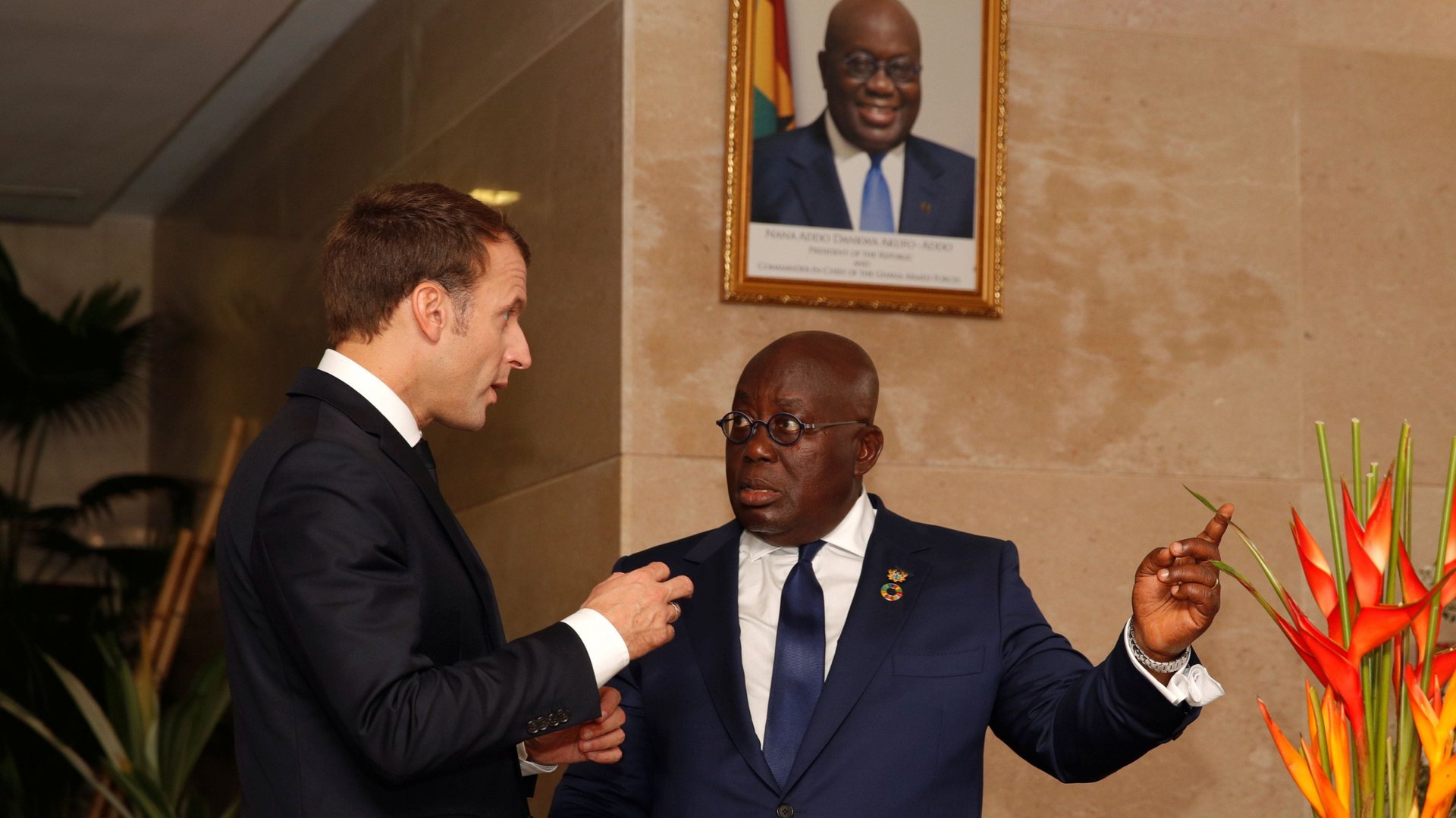Ghana’s president wants to make French a formal language, but it’s not a popular plan
Ghana was one of the first British colonies in sub-Saharan Africa to achieve independence in 1957 and as such has had strong ties to the English language as a modern country for over a hundred years. Most Ghanaians who’ve been through some level of formal education learn to speak English alongside their regional language.


Ghana was one of the first British colonies in sub-Saharan Africa to achieve independence in 1957 and as such has had strong ties to the English language as a modern country for over a hundred years. Most Ghanaians who’ve been through some level of formal education learn to speak English alongside their regional language.
But since coming to office in 2017, Ghana’s president Nana Akufo-Addo has been pushing for Ghanaians to also learn French and one day make it the country’s official second language.
To outsiders, the president might seem like an unlikely champion for Gallic influences; after all he is known for his unplaceable English accent; he descends from a Ghanaian political aristocracy with long ties to Britain and was partly educated in England from a young age.
But Akufo-Addo also speaks French fluently, learned when he lived in Paris in the 1970s, and is always happy to flaunt his language skills given the chance.
The president has announced plans to make French a compulsory subject for high school students and in a 2018 speech (given entirely in French), he told colleagues at La Francophonie Summit, “our goal is to live, one day, in a bilingual Ghana, that is English and French, together with our own indigenous languages.”
“The promotion of the French language is a major education priority,” foreign affairs minister Shirley Ayorkor Botchway said last month. French is expected to feature prominently when details of Ghana’s new basic school curriculum are announced in the coming weeks.
Akufo-Addo’s support for French comes as France’s president Emmanuel Macron is also making a soft power push to raise the status of French across Africa, starting with former French colonies.
“As France represents only a fraction of the active French speakers, the country knows the fate of French language is not its burden alone to carry,” Macron said in March 2018 as he launched a bold new ambition to increase the number of speakers of the language of Molière. That speech in Paris predated an earlier one in Burkina Faso where he pleaded with students not to ditch French for English and urged them to help make French “the number one language in Africa and maybe even the world.”
Thanks to Africa’s youth, French is now the fifth most-spoken language in the world and by 2050, 80% of the projected 700 million French speakers will be in Africa.
While there is no denying the push for French in Ghana has a lot to do with the president’s personal affinity for the language translating into national policy, there is a good case to be made for increasing the number of Ghanaians who can speak French.
All of Ghana’s immediate neighbors use French as their official language and in the wider Ecowas regional block, eight out of 15 member countries are Francophone. A “bilingual Ghana”, strategically positioned, could stand to benefit economically from ever closer ties with her neighbors.
But the president’s vision to get Ghanaians to speak French will prove a lot harder to achieve.
“Au revoir Mister”
For years, 14- and 15-year olds in Ghana have had to take a French language exam as part of a national exam that allows students to progress to high school. However, that has failed to translate into a sizable number of Ghanaians being able to string together coherent sentences beyond exchanging pleasantries.
In many schools, French is taught once a week; the last subject of the school day with at best 45 minutes of lesson time. By the government’s own admission, it does not have enough French teachers to implement the new proposals and it hopes to tap into the increased resources Macron promised. Also, the social currency that comes with English fluency remains a lot more desirable for Ghanaian parents.
Given the colonial history of most African countries, discussions around learning international languages can often be a sensitive topic. But in recent years, those discussions haven’t been about French but instead about Mandarin and China’s increasing economic and political influence. Countries including Kenya, Uganda and South Africa are all introducing Mandarin into their schools’ curriculum.
Dying local languages
And while the Ghanaian public recognizes the usefulness of French proficiency, there is no public support for mandatory lessons in schools. Critics say, the new educational proposals privilege a foreign language over Ghana’s 50 local languages, some of which are dying. Linguists estimate at least a dozen Ghanaian languages have been lost over the past century and about a dozen more have less than 1,000 speakers, according to a 2012 study.
The study found that “a lot of the indigenous languages of Ghana are in danger and could even be lost in the next few generations” and “the language policy of the Ghana government [especially in education] is contributing to the loss of Ghanaian languages,” the authors say.
Almost a third of Ghana’s indigenous languages have less than 20,000 speakers and rapid urbanization also means these languages risk extinction.
Sign up to the Quartz Africa Weekly Brief here for news and analysis on African business, tech and innovation in your inbox